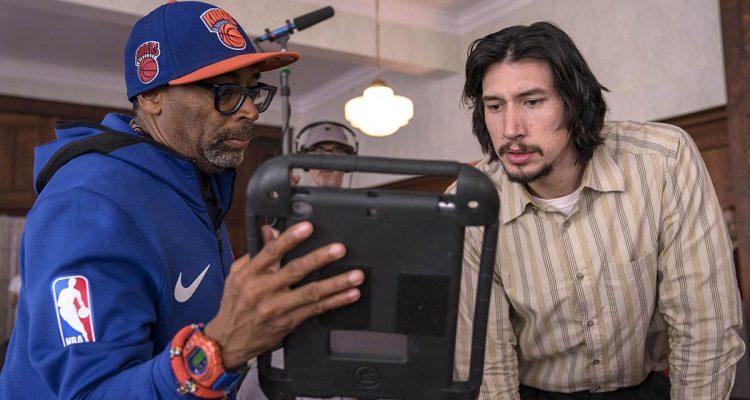After its premiere at this year’s Cannes Film Festival, all eyes were on Spike Lee’s latest film “BlacKkKlansman,” as it debuted this summer in the US. The film went on to become a hit for the iconic director, but also a bit of a lightning rod for controversy. Obviously, any Spike Lee film is due for controversy, as the filmmaker has never backed down in his whole career. But “BlacKkKlansman” faced criticism from people that no one expected, including fellow filmmaker Boots Riley. In a new interview, Lee talks about that criticism and also explains how he was able to get the footage for the powerful final minutes of the film.
READ MORE: ‘Sorry To Bother You’ Director Boots Riley Pens Takedown Of Spike Lee’s ‘BlacKkKlansman’
Many people, who you would assume are sure-thing fans of the film, criticized the way police were portrayed in “BlacKkKlansman.” Considering the film tells the true story of the first Black police officer in the Colorado Springs Police Department as he infiltrates the KKK, there were fans of Lee’s previous films that felt the director took it easy on the police, often portraying them as heroes. In light of recent events involving police violence against Black people, fans expected a much harsher view of cops in the film.
During a new interview via Variety conducted by Senator Cory Booker (a man who recently found himself in a bit of controversy), Lee explains his views on police. “I never condemned all police. We need police, but we need police who are fair and will treat everybody the same. At the same time, I’ve been not hesitant to criticize police in my films when they are doing some effed-up stuff,” says Lee.
One of the scenes that is pointed to the most is how the finale **Spoiler Alert** features John David Washington’s Ron Stallworth being “rescued” by white cops after he attempts to stop a bombing. At first, the police are unsure of who he is, as he’s undercover and the only Black officer, but ultimately, the film shows that the white police help Stallworth and prevent others from getting hurt.
Lee explains why that’s not exactly how it happened, and why people are misinterpreting the scene:
“When he’s trying to apprehend the bomber and the cops pull up, they’re on him. And then what a lot of people miss, the bomber is screaming, ‘That n— tried to rape me.’ How many black men are no longer here with us because of the accusation that is put forth by a white woman saying, ‘This black man tried to…’ Look what happened in Dallas the other day [when a white female cop killed Botham Shem Jean in his apartment]. I don’t want to get started, but how did she get manslaughter?”
Not sure this will answer all the questions that Riley, and others, asked about the film, but it does show that Lee is aware of “BlacKkKlansman’s” controversial subject matter.
Lee also talked about the final minutes of the film, which show the real footage from the recent Charlottesville white supremacist protests that ended up costing the life of a female protester. Many people are caught off guard by the final moments, and the footage, but for Lee, there was no better way to end the film.
He explains:
“We were in pre-production when Charlottesville happened. When I saw that, I knew in my heart that this was going to be the ending that would make people sit in silence. But there’s one thing I always talk about. I was not going to have that scene of the car, that murder weapon, going down that crowded street without the blessing of Susan Bro [whose daughter Heather Heyer was killed]. I called her up and gave her my condolences. And I asked her blessing: ‘Can I please use that shot?’ And she said yes. So once Ms. Bro gave us her blessing, I knew this film was going to have the impact it has.”
“BlacKkKlansman” is available now on VOD and home video.

